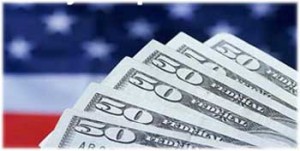Opinion: 2012 election cycle draws attention to campaign finance issues

Photo from World Prosperity, Ltd.
By Emma Thomas, Contributing Writer
Campaign money doesn’t grow on trees. If it did, maybe our government would put environmental policy at the top of the political agenda, or make any mention of the environment at all in debates leading up to the election. But protecting the environment is a low priority for legislators who take big contributions from oil and energy companies. This year alone, the oil and energy industry has donated over $15 million to candidates and parties to continue America’s dependence on fossil fuels. In fact, less than one percent of the American people contribute most of the money that goes to campaigns, and many of the biggest givers represent corporations. In addition, those candidates who spend the most money almost always win. This means that money decides who runs, who wins, and what gets placed on the agenda. So why does the issue of campaign finance continue to be ignored?
Campaign finance as a gateway issue. People fail to recognize campaign finance as, what Professor Bruce Larson and others call, “a gateway issue”: one that impacts the way other policies and issues get decided on in government. The most prevalent issues concerning voters today relate to education, economy, environment, civil and women’s rights, and poverty, and all are directly impacted by the influence of money in politics. Campaign contributions by the student-loan industry to members of Congress have stymied efforts to make student loans more affordable, and have coincided with rising costs of tuition and student debt. All this at a time in American society when a college education has never been more crucial for success. Corporations use campaign contributions as a way to exercise political power to roll back regulations and politically block limits on their ability to maximize their profits. However, it was these politics of deregulation that resulted in the United States’ current housing and financial crisis.
Our current system of funding campaigns reveals that the American idea of equal treatment and equal opportunity of all citizens is in fact a myth. Equal rights are undermined by a political system that blocks equal participation by women and racial minorities who have less access to personal wealth or networks of large donors. Income inequality in the United States is greater than in any other developed democracy, and the needs and concerns of poor and middle income people are continually silenced by wealthy special interests. Public trust in the political system, and confidence in our democracy is being eroded.
Clean elections. To strengthen our democracy and solve the problems we face as a country, we need to change the way private money dominates our elections. One promising reform is a system of public financing of elections, called “Voter-Owned Clean Elections” or “Fair Elections.” These systems allow qualified candidates to get public resources to run their campaigns so that politicians don’t have to depend on special interests and wealthy contributors. States like Connecticut, Maine and Arizona have already reformed their campaign funding and have demonstrated a variety of positive outcomes from adopting the option of public financing. Citizen Owned Elections make politicians accountable to the people, not the corporations, and enable anyone with good ideas to run for office. Rather than spending time raising campaign cash, a public financing option encourages representatives to turn their attention to solving our problems, and restores public confidence in our political system by giving young people, and others, a real voice in our democracy.
Change Elections. Change America. Citizens have been working together since the early 1990’s to advocate for public financing, and student organizers have historically played a vital role in social movements for change. The Gettysburg College chapter of Democracy Matters is part of a national network of groups and individuals working to get big money out of politics and people back in. We hope you will join the Gettysburg chapter of Democracy Matters and be part of the fight to take back our democracy.
Contact Emma Thomas at thomem01 for more information about Democracy Matters.
